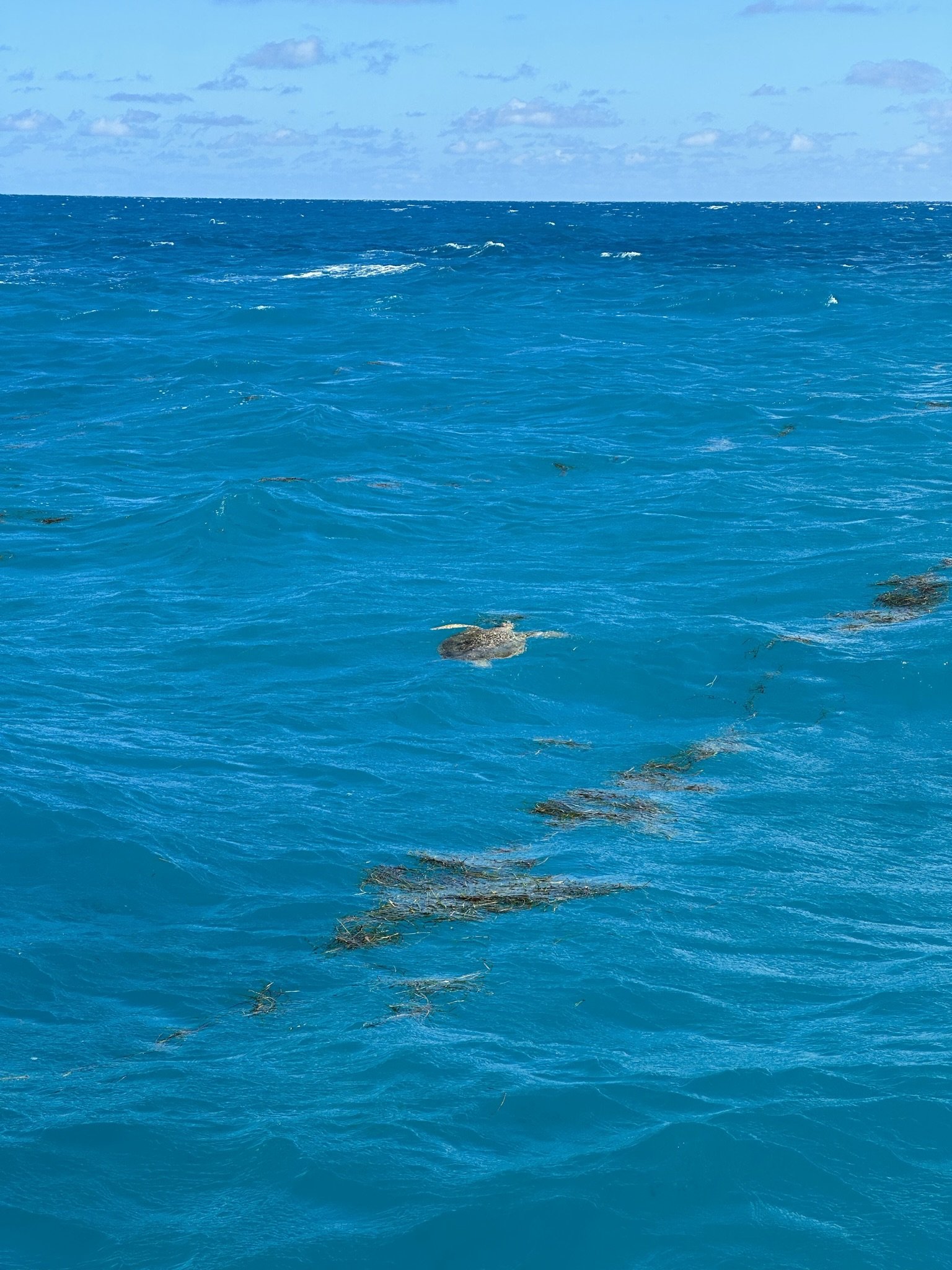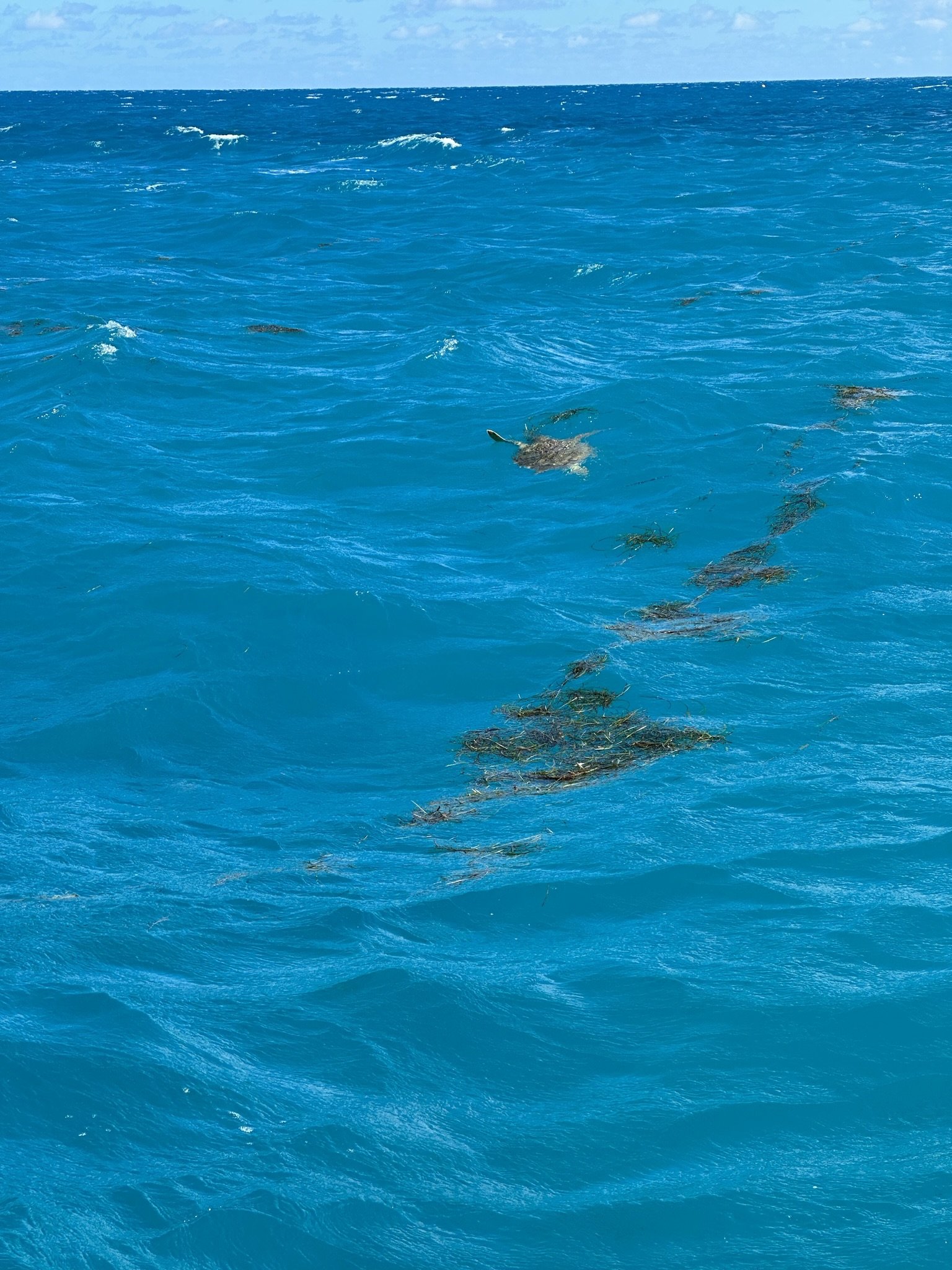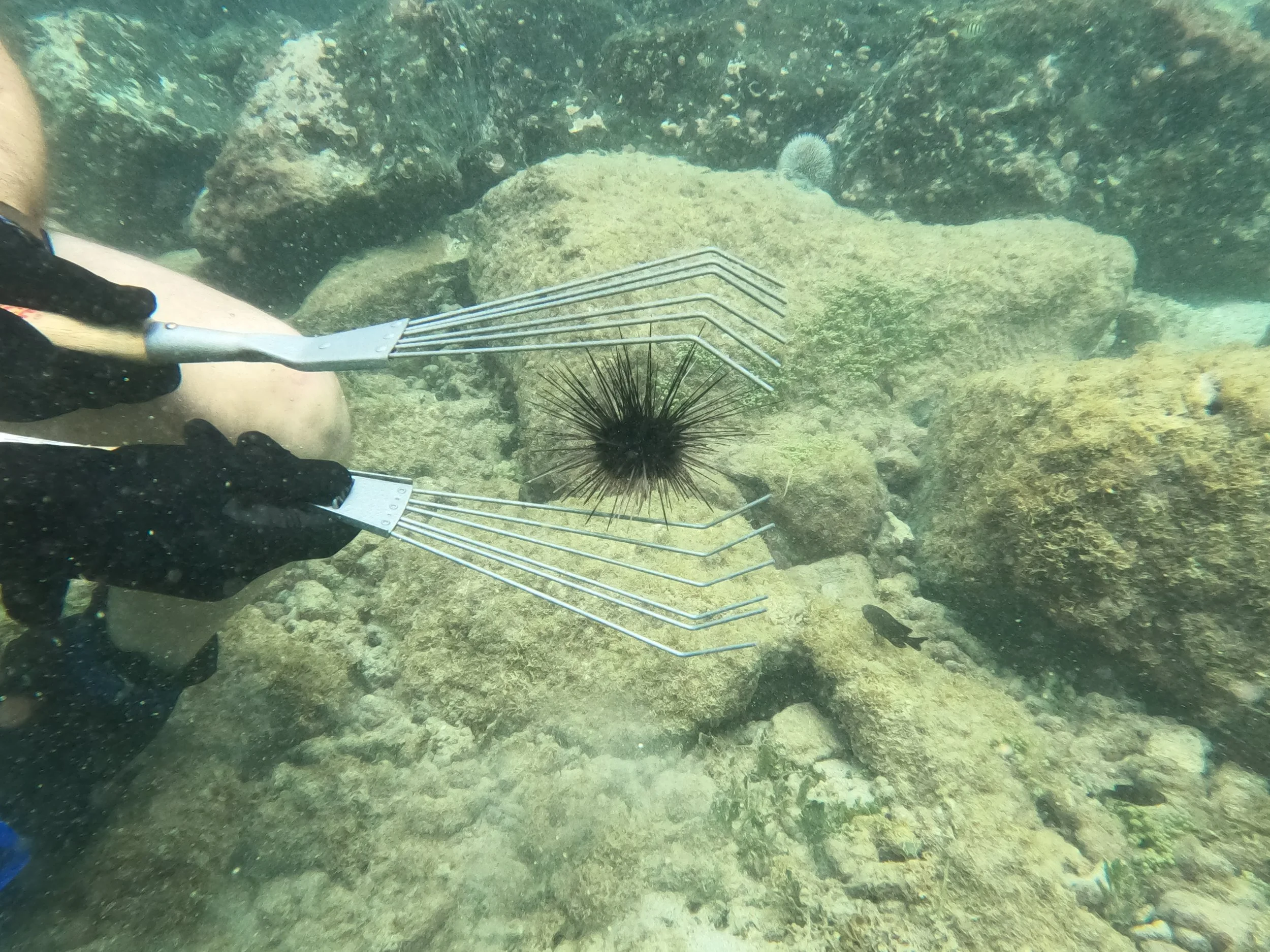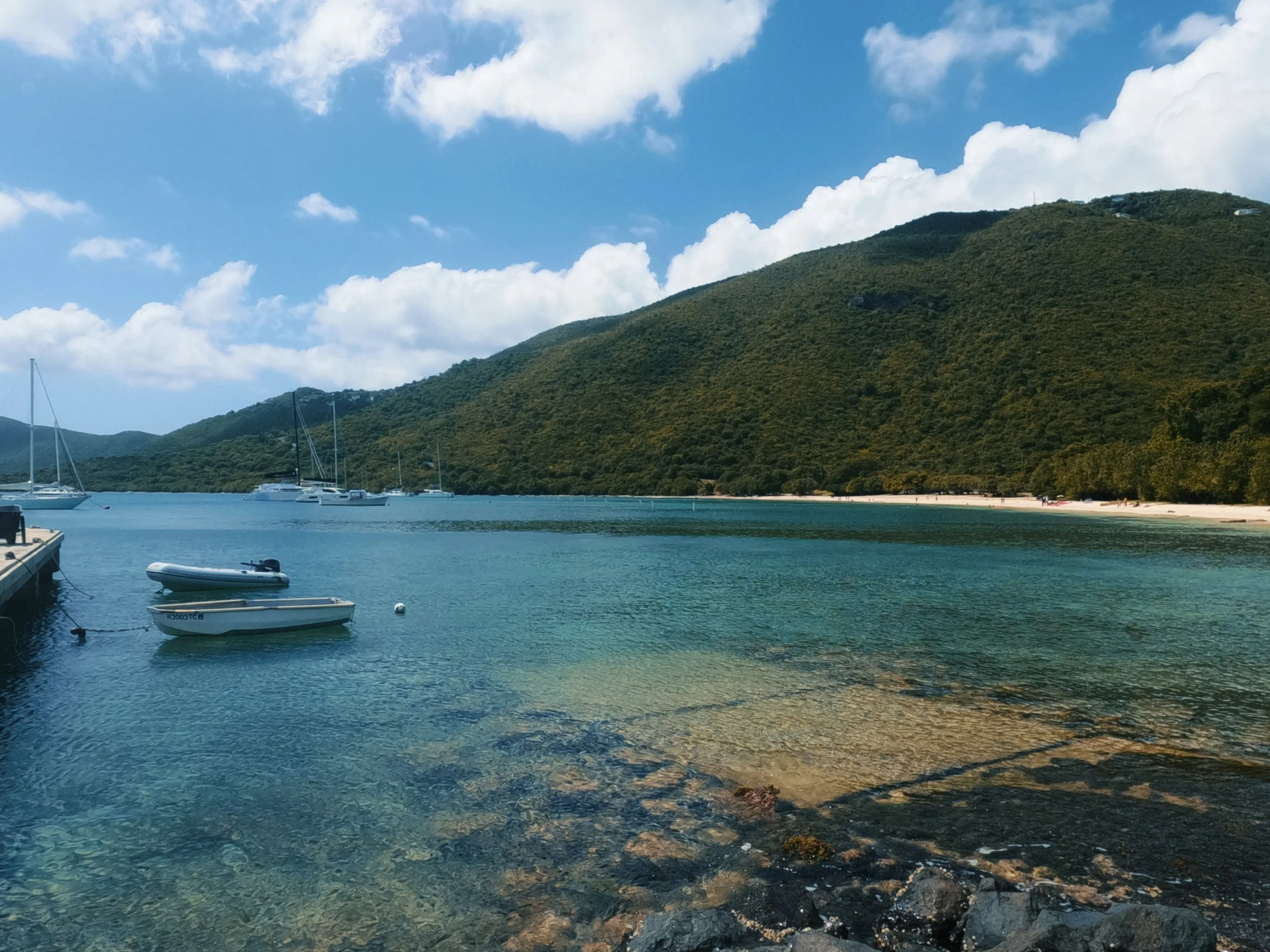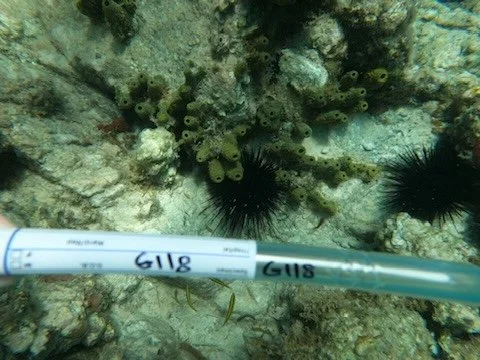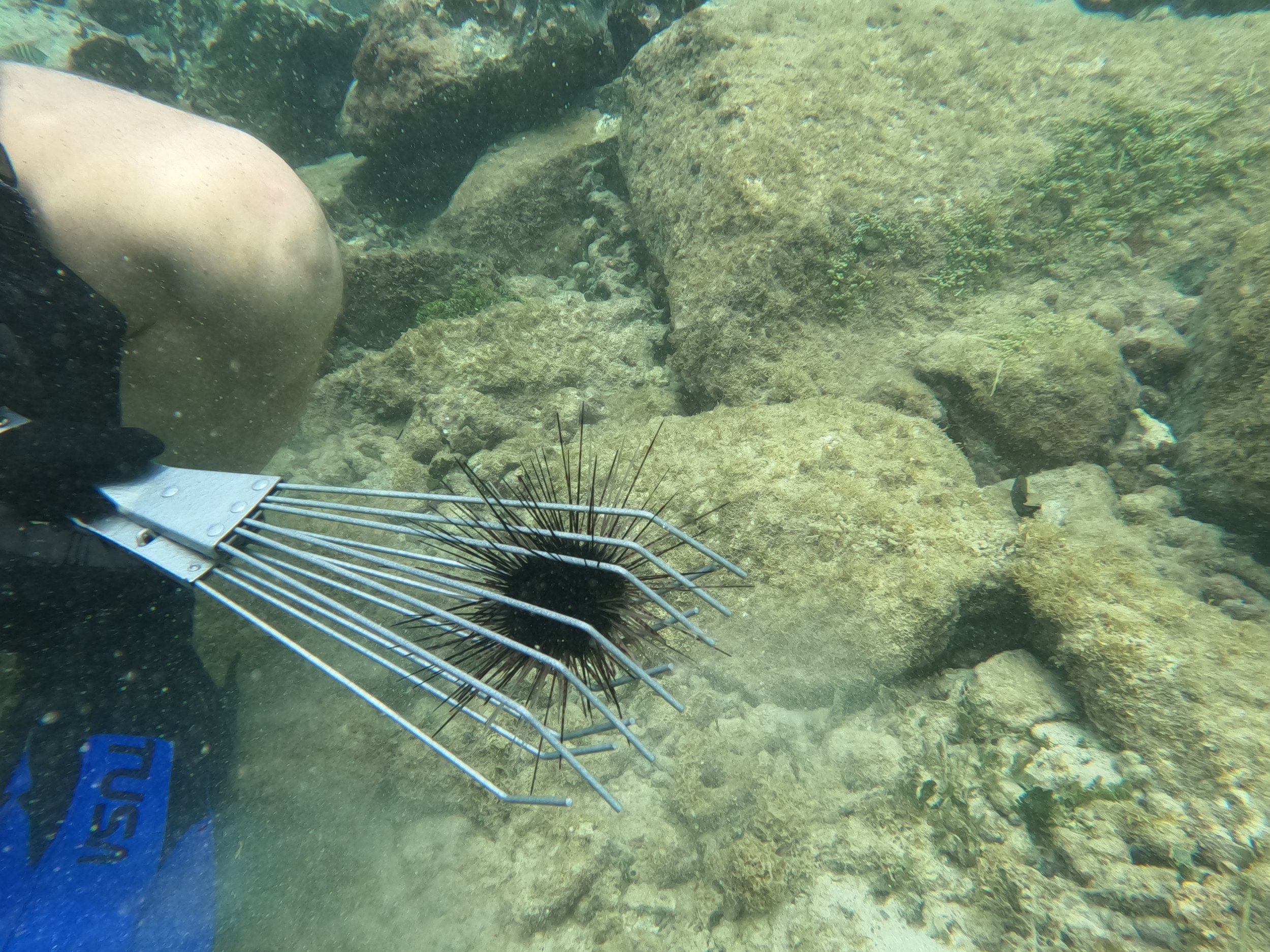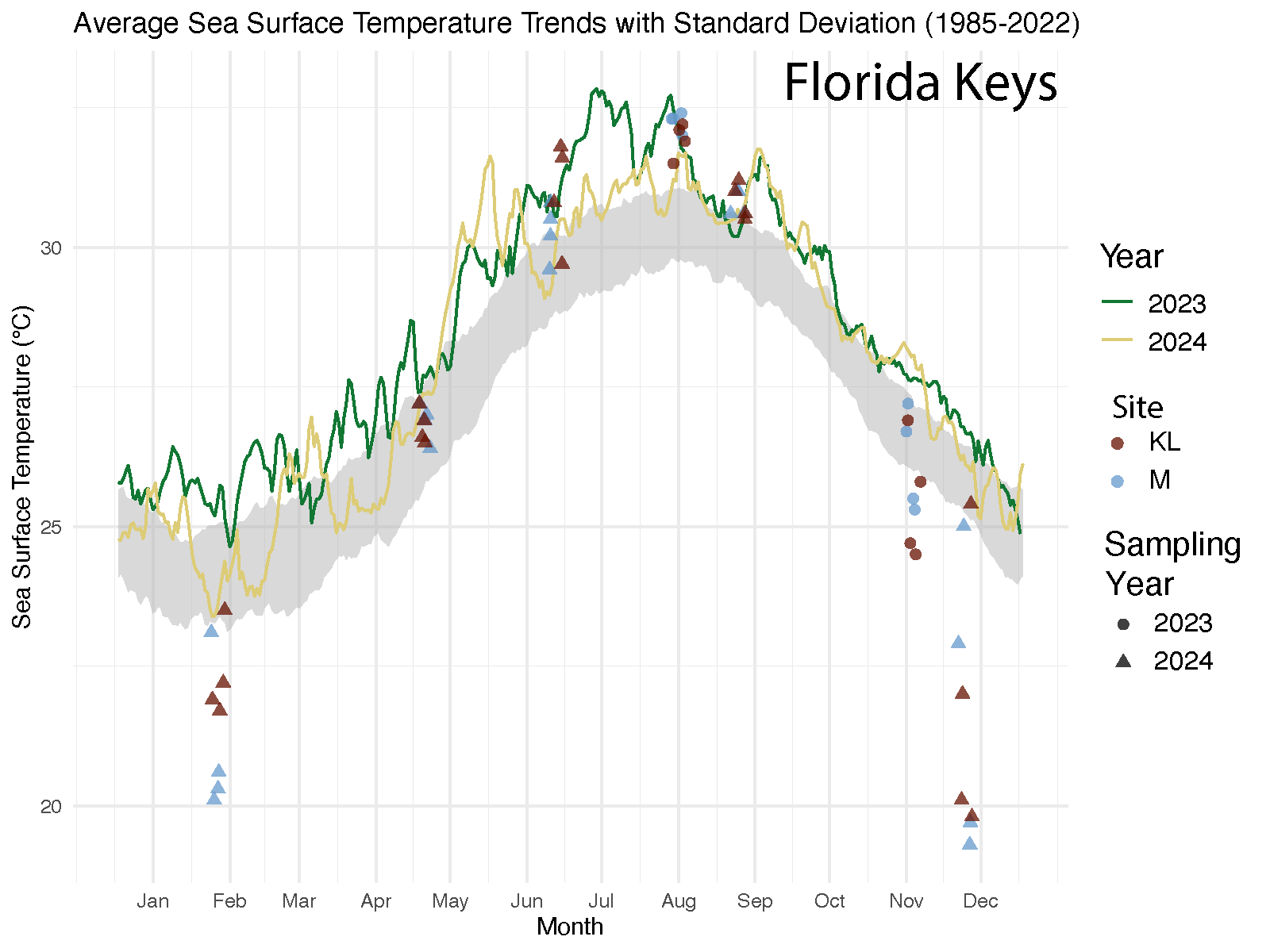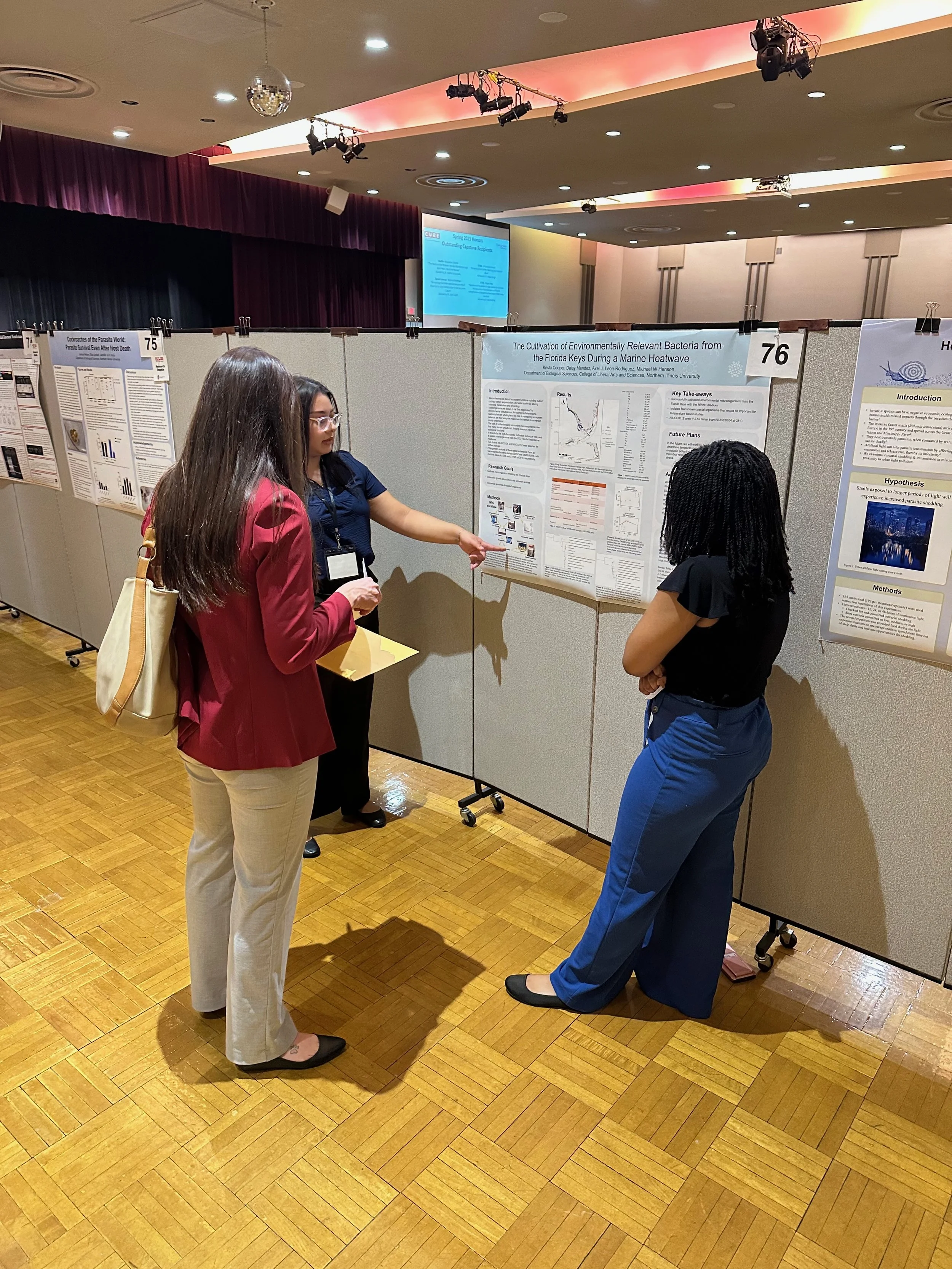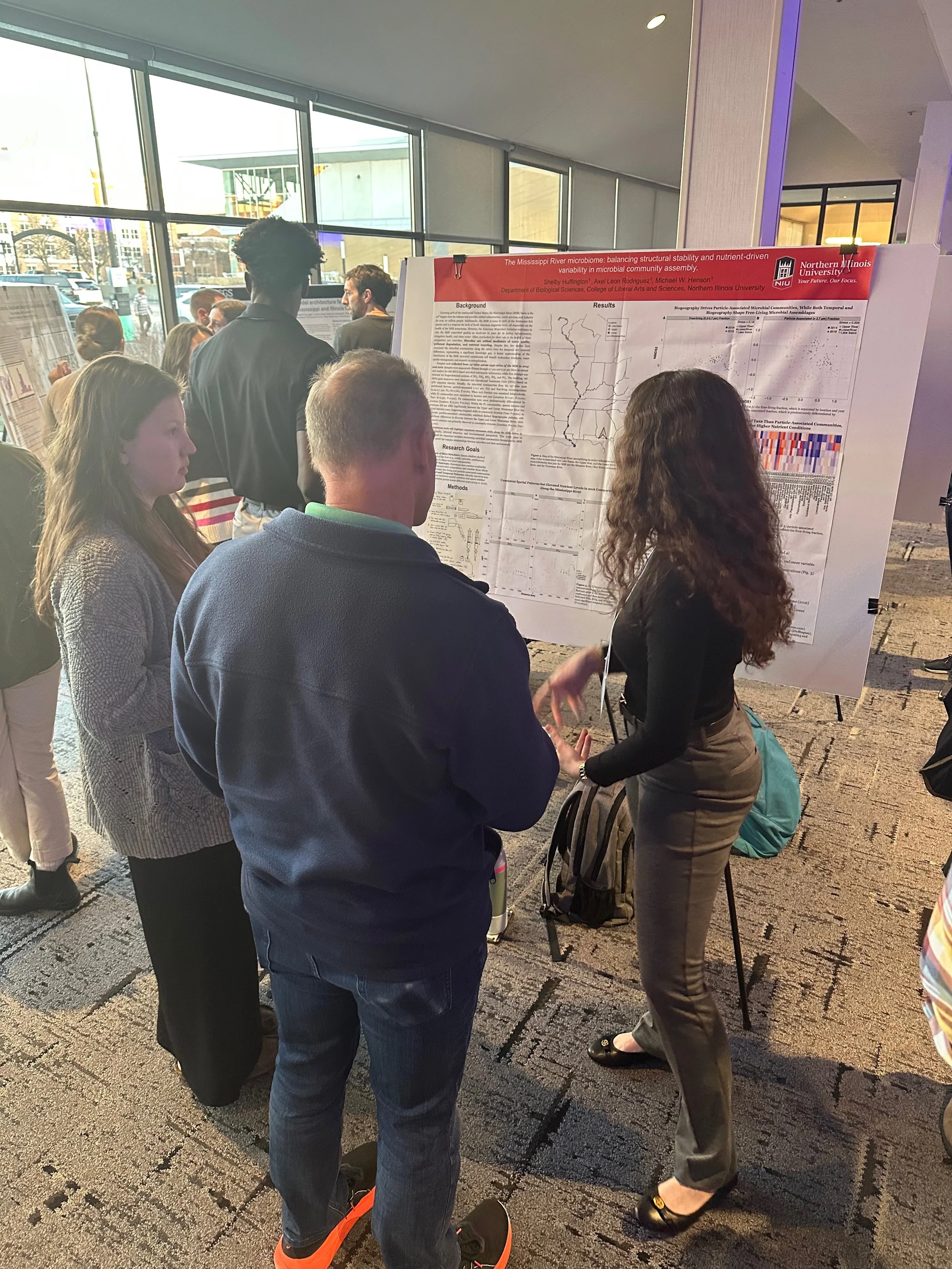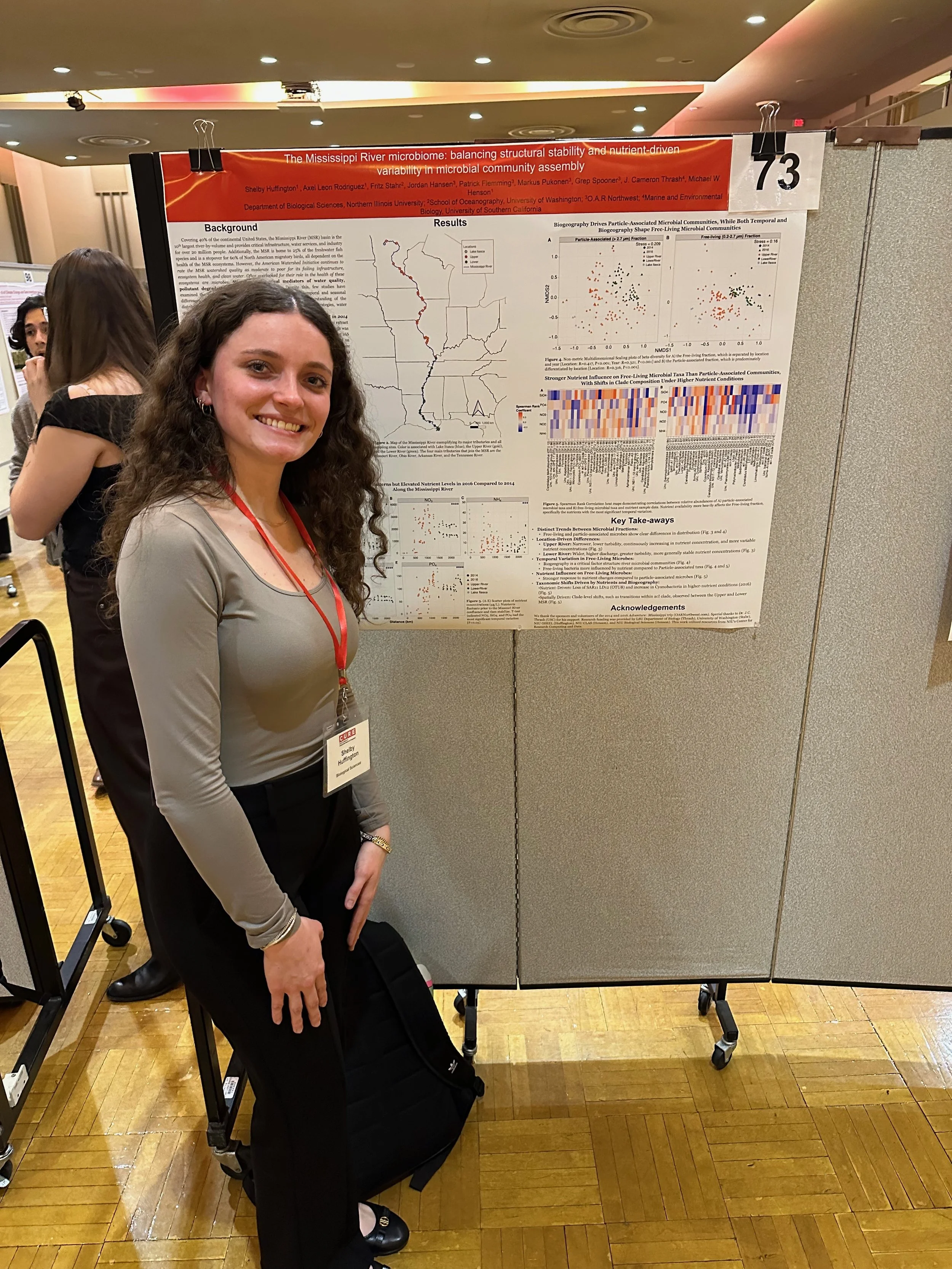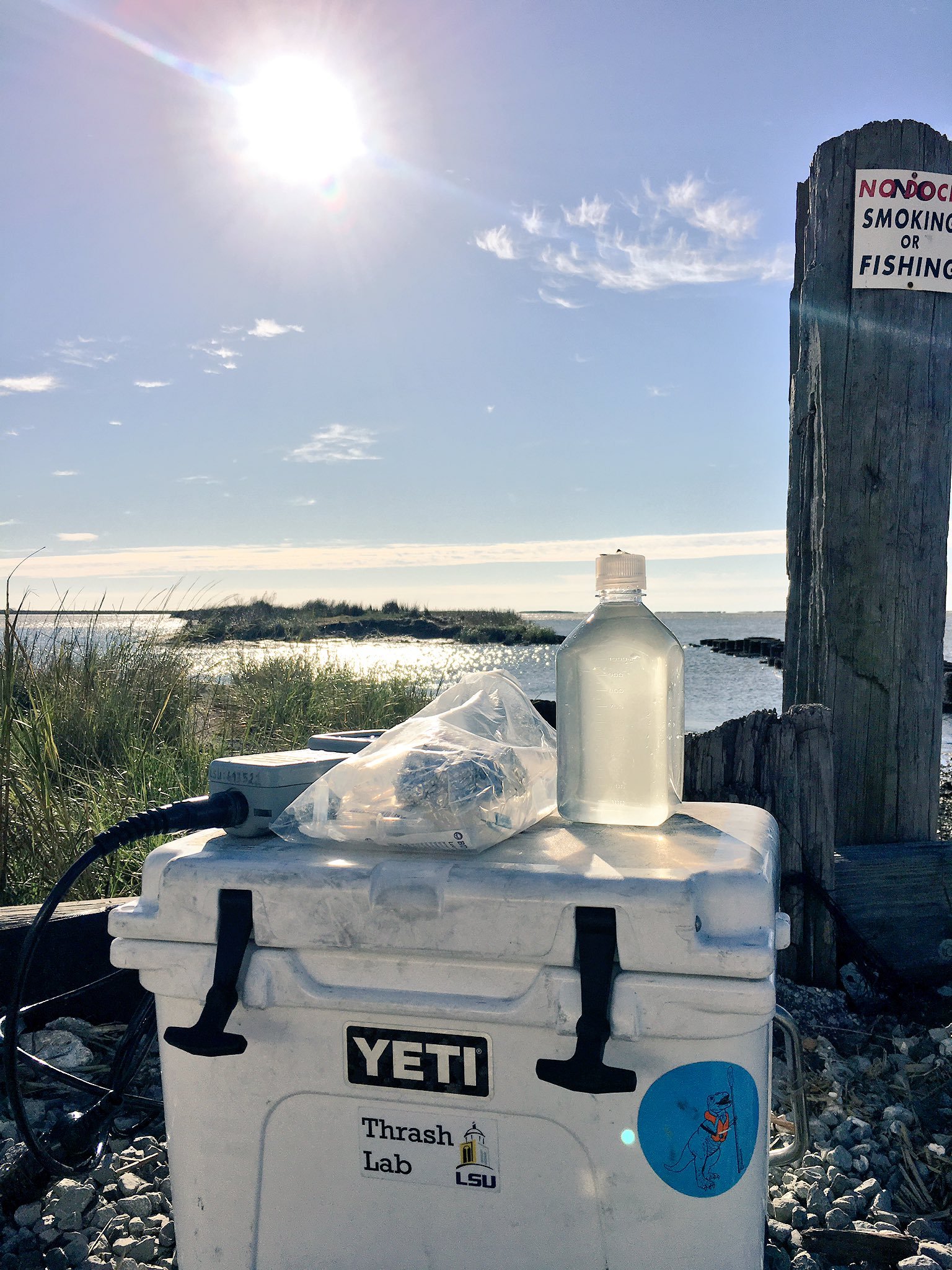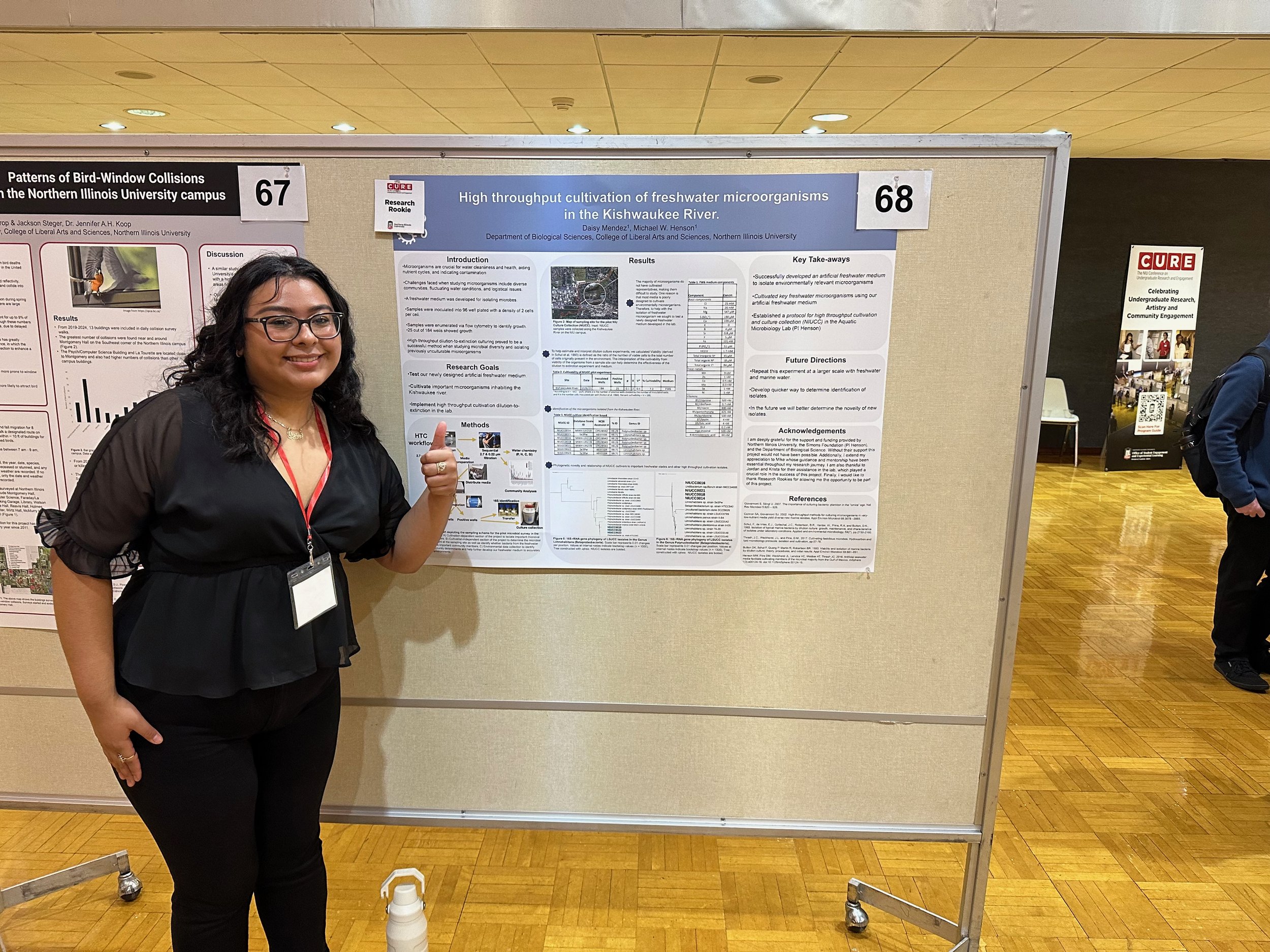Graduate Student Opportunity
Graduate Student Opportunity
We are seeking a highly motivated graduate student (M.S. or Ph.D.) to join an NSF-funded research project supported by the NSF Biological Oceanography Program. The student will contribute to a collaborative, interdisciplinary project titled "Unraveling parasite, host, and environmental drivers of Diadematidae scuticociliatosis, a globally significant marine disease."
This project investigates the ecology and transmission dynamics of a newly identified ciliate pathogen, Philaster apodigitiformis (DaScPc), responsible for mass mortality in Diadema sea urchins. The successful applicant will work at the interface of microbial ecology, environmental microbiology, and disease ecology, with a focus on microbe-environment interactions.
Field Update: USVI Marine Disease Survey
Members of the Aquatic Microbiology Lab recently traveled to St. Thomas, U.S. Virgin Islands, to conduct fieldwork for the Diadema Scuticociliatosis and Marine Disease Dynamics project, in collaboration with Dr. Ian Hewson and the Cornell Marine Mass Mortality Laboratory (team-aquatic-virus.com). This effort was supported by the Department of Biological Sciences and the College of Liberal Arts and Sciences at Northern Illinois University.
Recent reports of renewed Diadema mortality events across the Caribbean—including in Martinique, the Dominican Republic, and the USVI—prompted a rapid response. Because the original outbreak was first characterized in the USVI (see the 2023 Science Advances article), we shifted our focus to St. Thomas to build continuity with earlier work. These outbreaks are often short-lived making rapid coordination and sampling a logistical challenge.
In addition to facilitating local sampling efforts with partners in Martinique and the USVI, our team visited four reef sites around St. Thomas and collected over 100 water column and swab samples. We're excited to continue this important collaborative research aimed at understanding marine disease dynamics across the region.
Congrats to Axel on his 2025 Bacillus Award
We’re thrilled to congratulate Axel on being awarded the highly competitive 2025 Bacillus Grant from the NIU Department of Biological Sciences in support of his dissertation research. Axel’s work explores how the unprecedented 2023–2024 marine heatwave impacted microbial community dynamics across coastal ecosystems. His project integrates field surveys, high-throughput sequencing, and ecology to uncover how microbiomes respond to extreme ocean warming. We’re excited to see the discoveries this award will help bring to light—congrats, Axel!
Student Presentations!
Congratulations to our undergraduate researchers in the Aquatic Microbiology Lab for presenting their 2025 projects! In April, Shelby and Dr. Henson traveled to La Crosse, WI to share her work on the Mississippi River microbiome at the Mississippi River Research Consortium (MRRC). Later that month, Shelby, Daisy, and Krista presented at the 2025 NIU CURE conference. Daisy and Krista showcased their cultivation and physiology research on bacteria from the OM252 and HIMB11 clades. Great work, team!
A happy first week of school to everyone at NIU and beyond. The Aquatic Microbiology Lab wants to welcome our newest members Axel Leòn-Rodriguez (Ph.D. Student) and Shelby Huffington (UG). We can wait for everyone to get started and grow the lab!
New Paper out with Dr. JC Thrash (@Thrash_Lab)
The estuaries of the northern Gulf of Mexico are diverse and critical to the organisms and people that call them home. We feel so lucky to be able to play a small role in better understanding the planktonic microbial communities that inhabit them and help contribute to their overall health. We found continued evidence of a globally distributed, core brackish microbiome, while also showing that the core group should be expanded to include taxa from groups such as acI Actinobacteria, MWH-UniP1 Betaproteobacteria, SAR324, and SAR11 subclade II.
Back in the field collecting samples!
Science is about collaboration! And the Aquatic Microbiology lab is lucky to have amazing collaborators. This June we were back in the field collecting samples with the CORNELL MARINE MASS MORTALITY LABORATORY (Dr. Ian Hewson, Cornell University). Our project is learning how microbes adapt and acclimate to thermal stress and its impacts on the ecosystem. We have been sampling since August of 2023 during the marine heatwave that hit the Southern US and Caribbean Sea.
Undergraduate Student and Research Rookie Daisy Mendez presented at the Conference for Undergraduate Research and Engagement
Collecting comparative samples for our August trip looking at heatwave impacts on bacterioplankton and animal microbiome (November 17-20)
This summer, aquatic environments around the Southeastern US and the Caribbean experienced an unprecedented heatwave, with one site in coastal Florida (Manatee Bay, FL) surpassing 38 °C. Fueled by climate change, temperature anomalies, such as the heatwave this summer, are expected to be exacerbated by El Niño. In collaboration with the Cornell Marine Mass Mortality Laboratory (Dr. Ian Hewson).
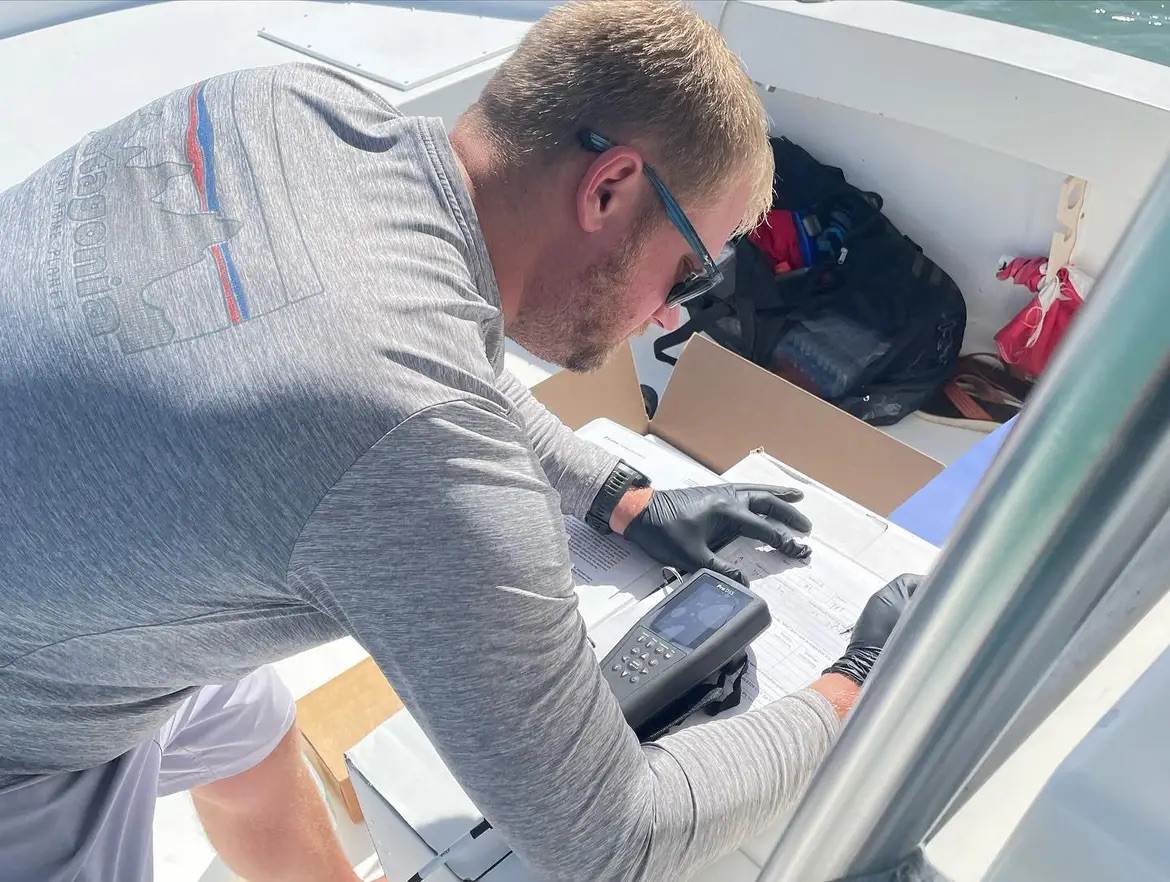
PI Henson collect data from YSI during August trip to the Fl Keys.
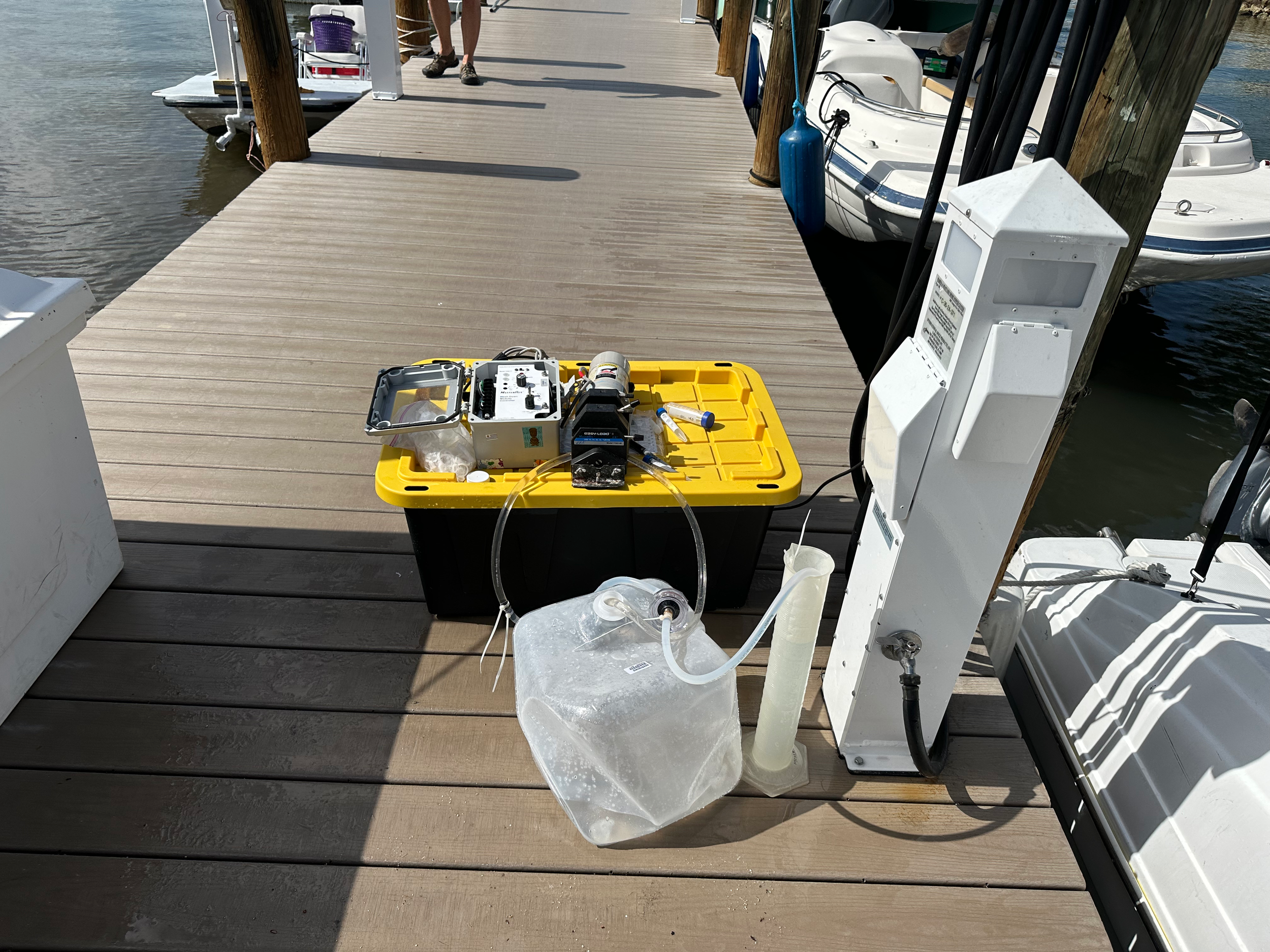
Water filtration set-up at the Marathon site during the August trip to the keys. Peak heatwave.
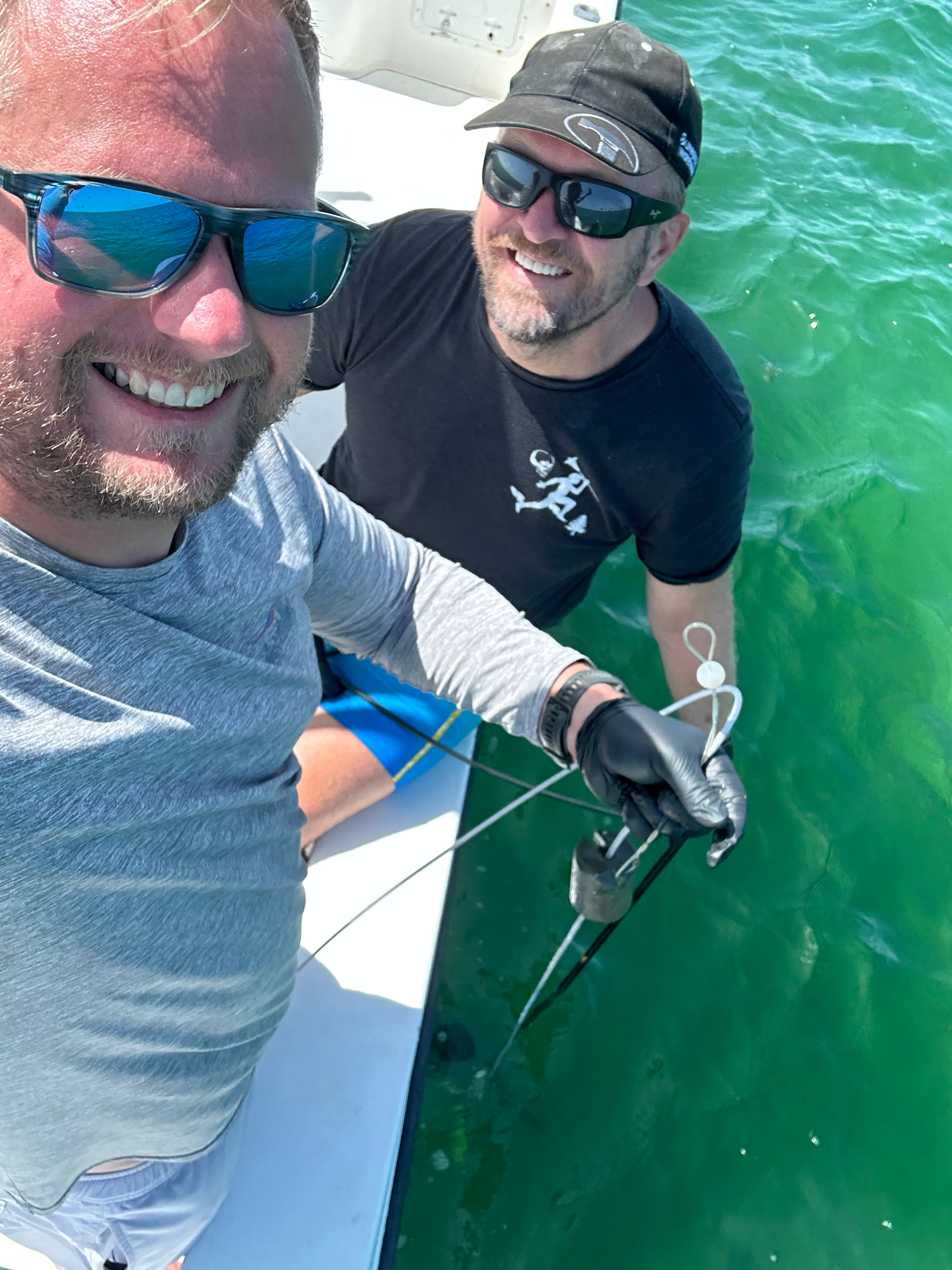
Collecting the first sample in August during the unprecedented heatwave in the southeast.
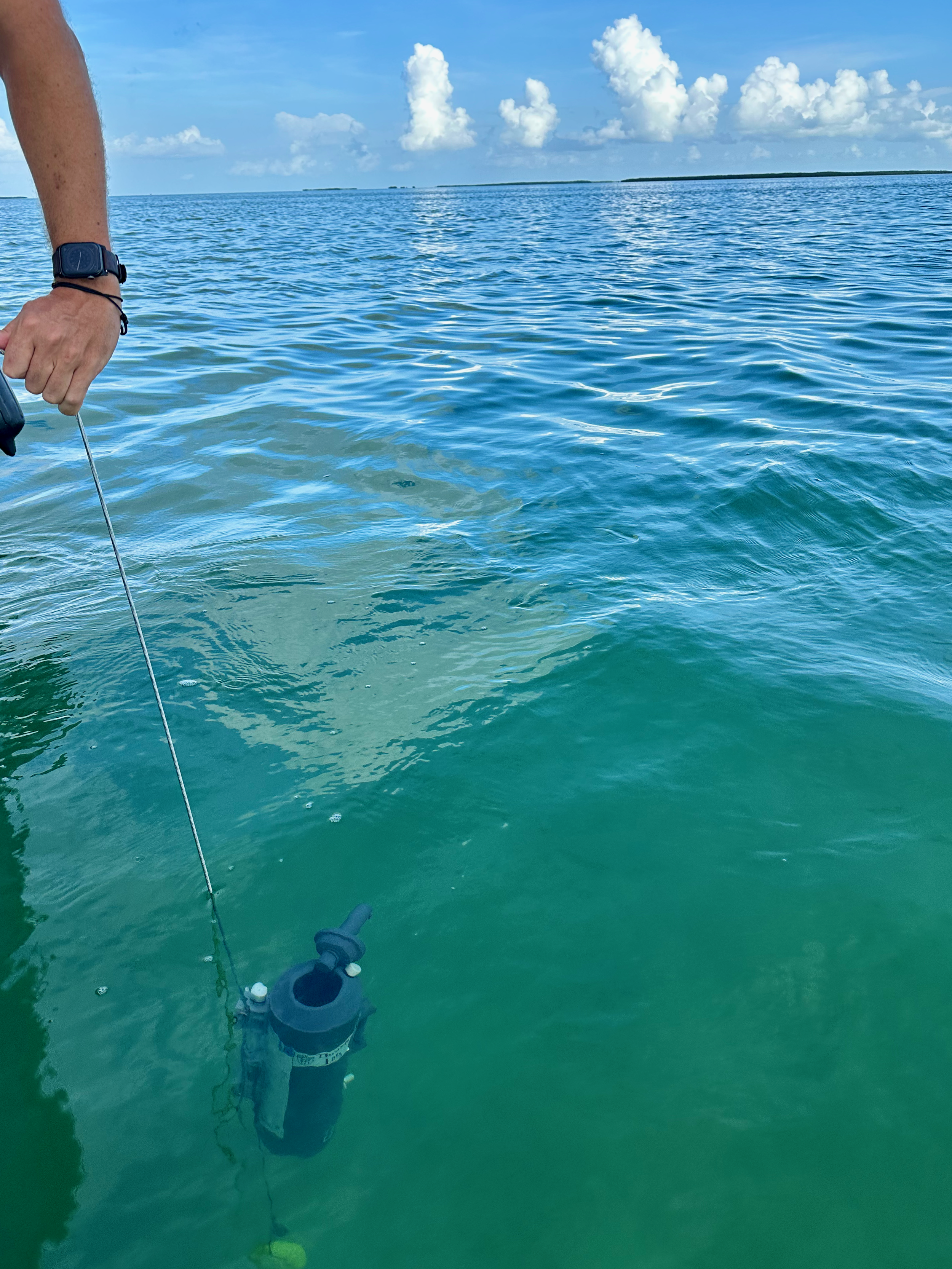
Collect water in Florida Bay using our niskin.
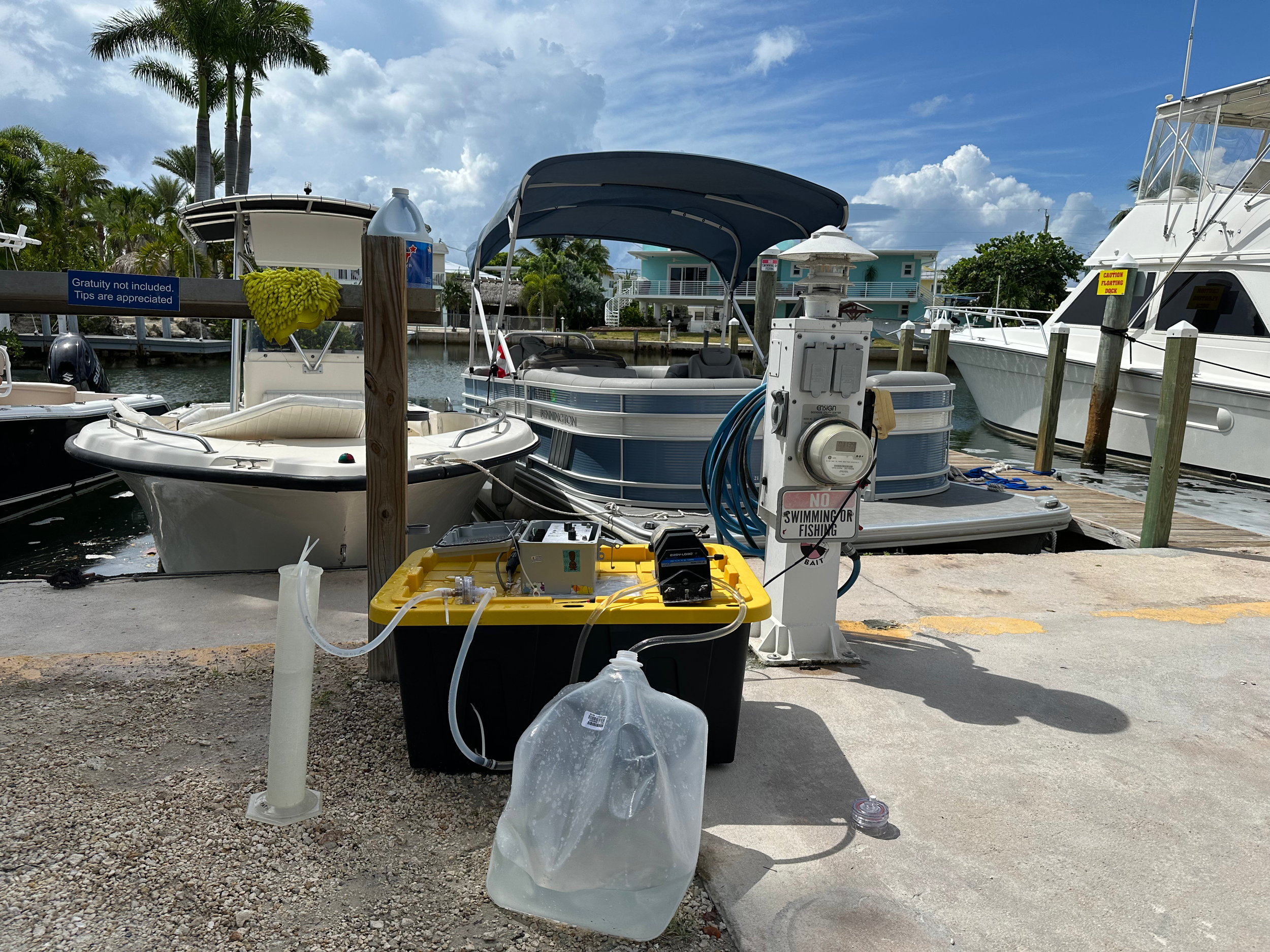
Water filtration set-up at the Key Largo site in August.
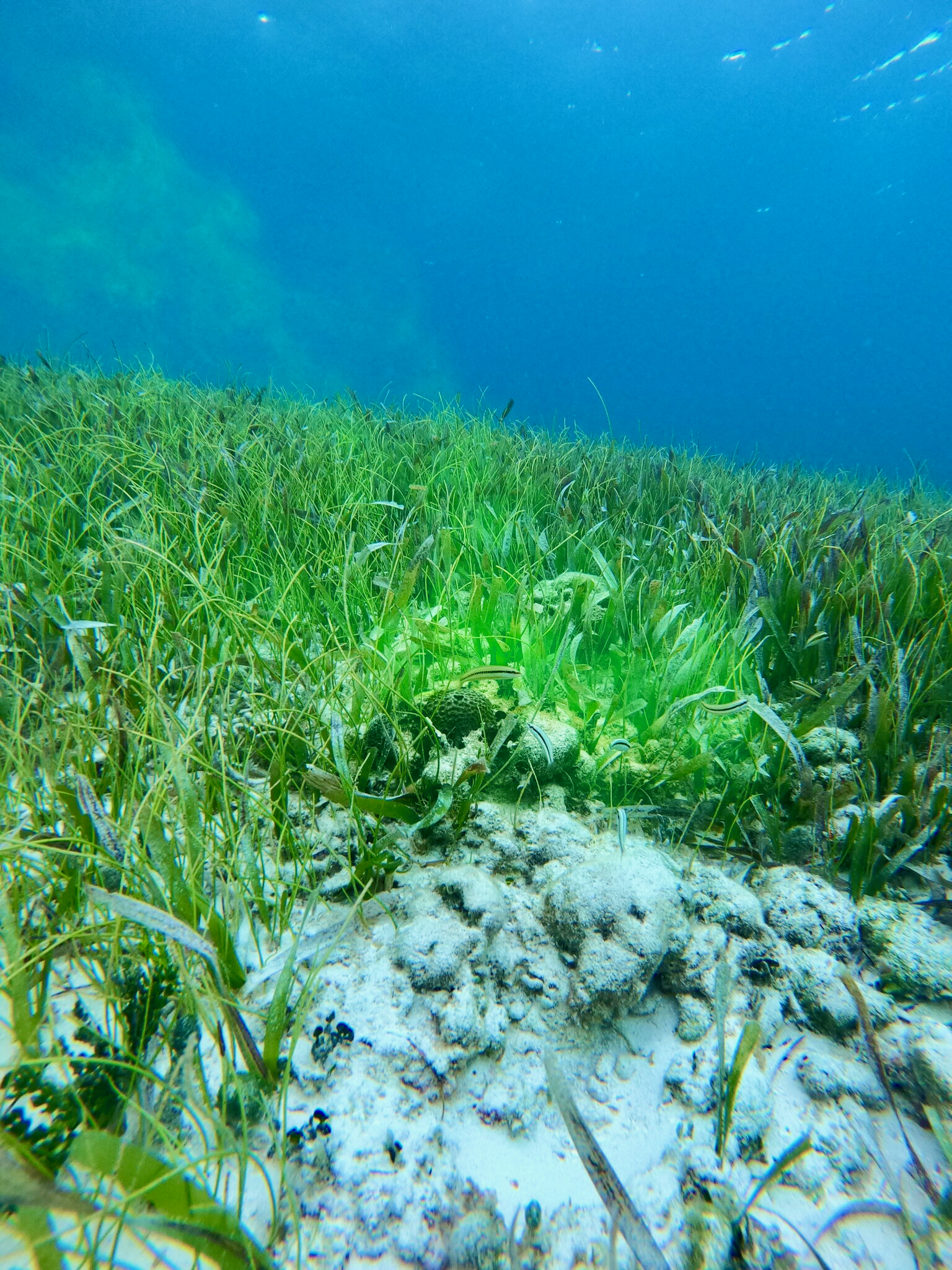
Collecting sponge samples off of Conch Reef during the summer heatwave.
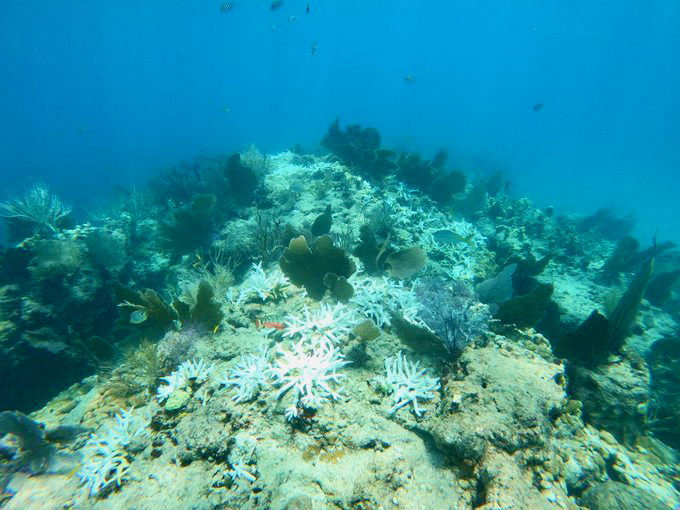
Coral bleaching at Sombrero Reef during the unprecedented heatwave in August.
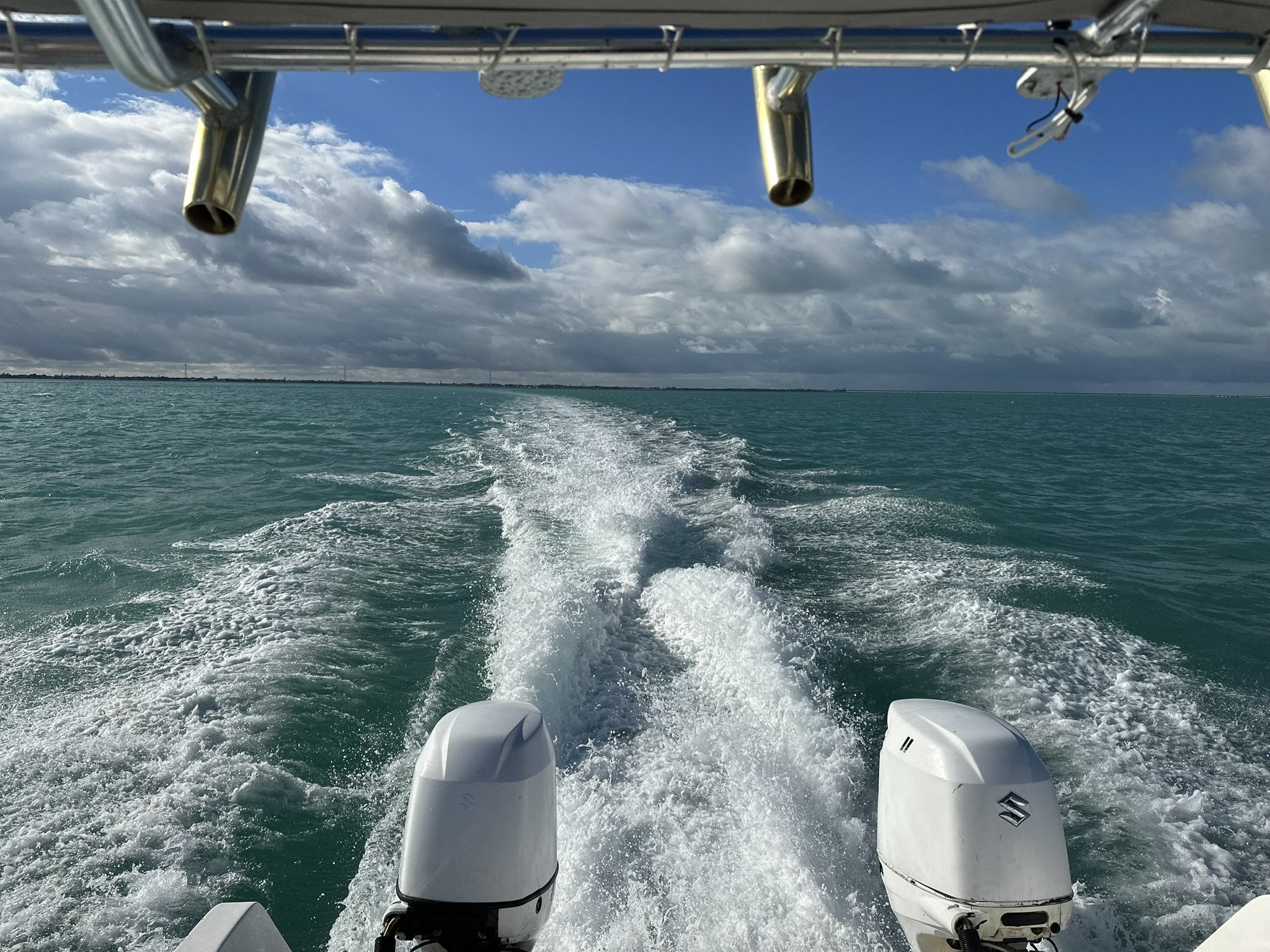
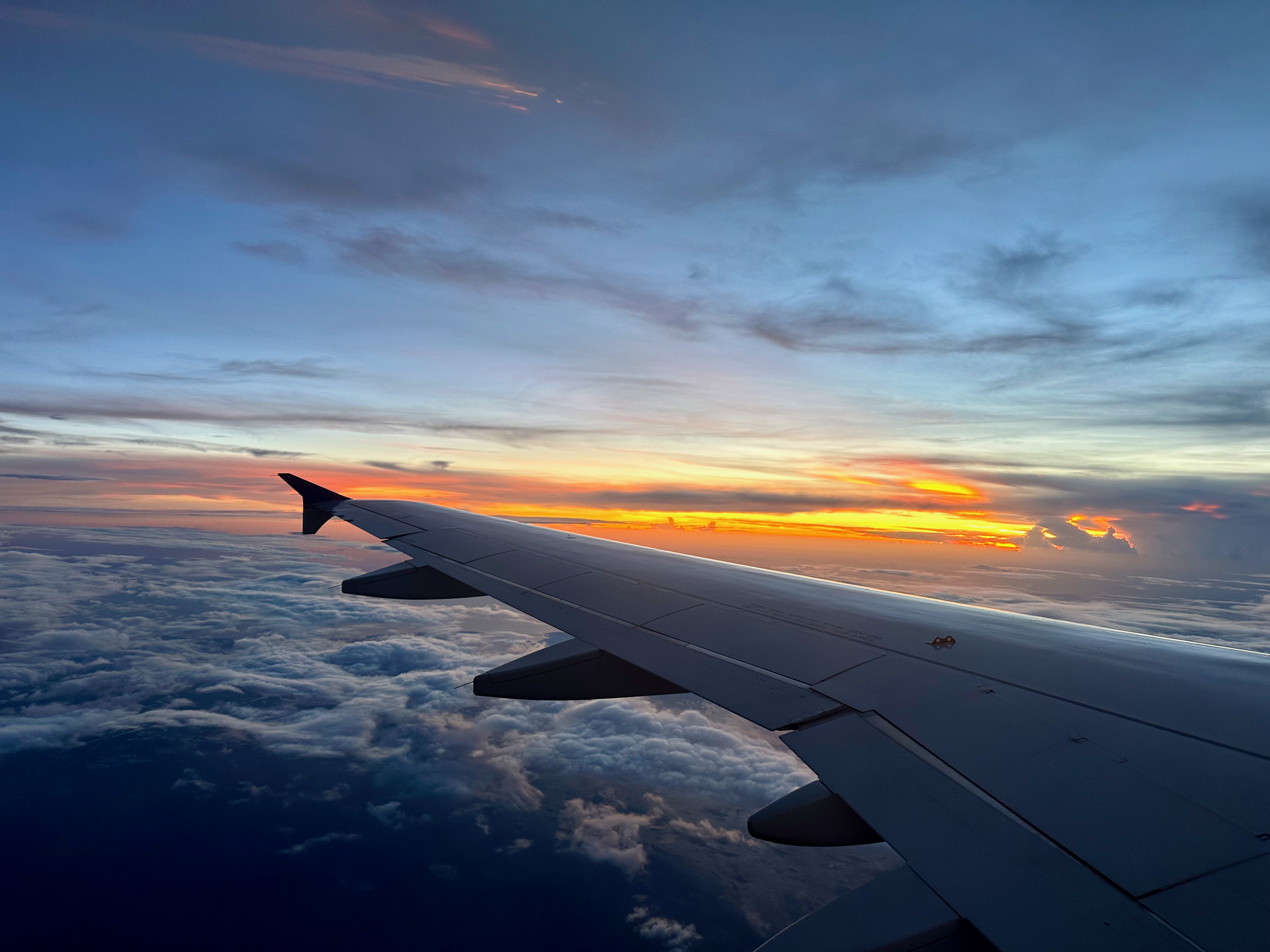
Returning home
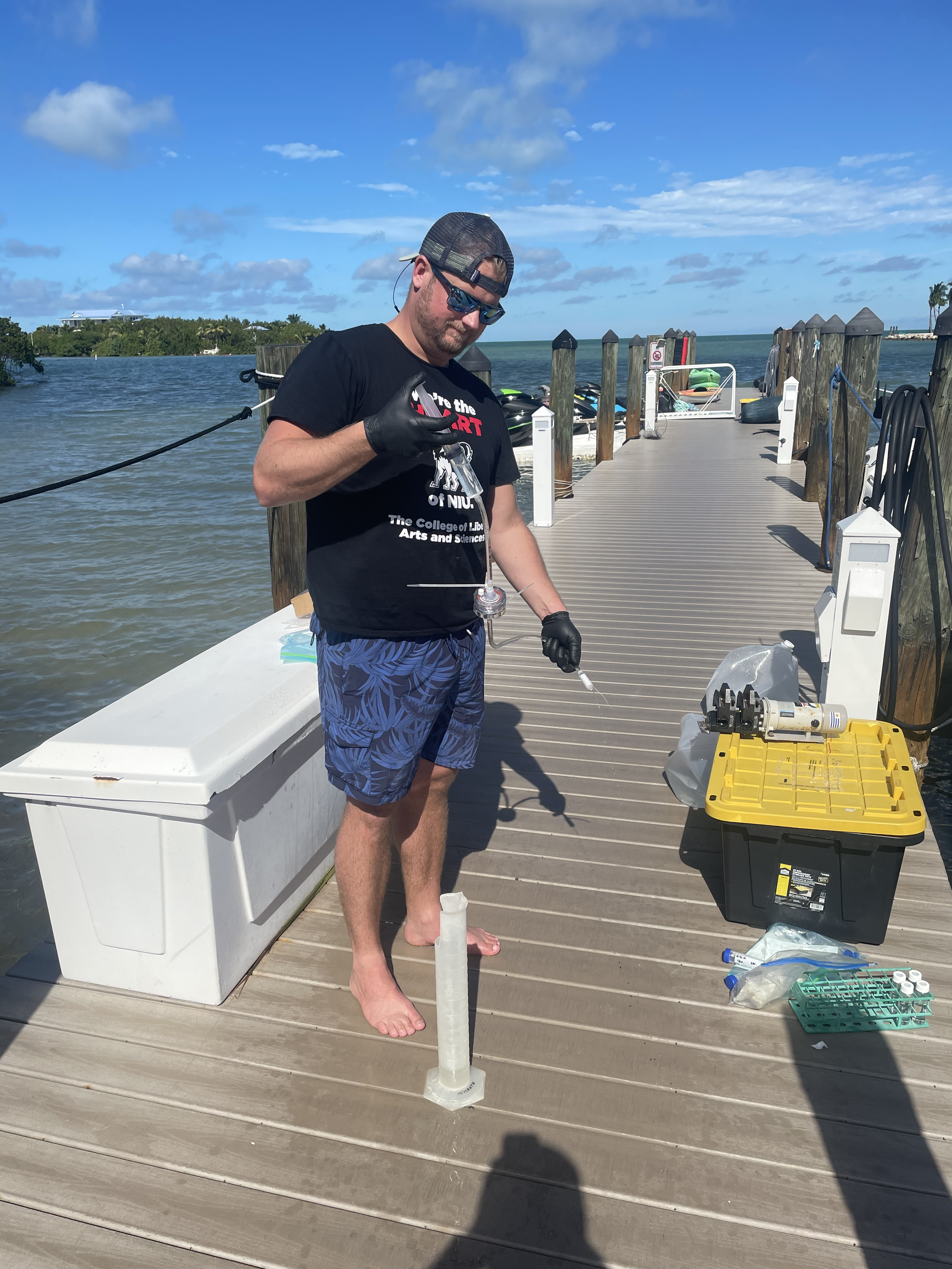
PI Henson hand sampling after the troubles with the pump (Marathon Site, November).
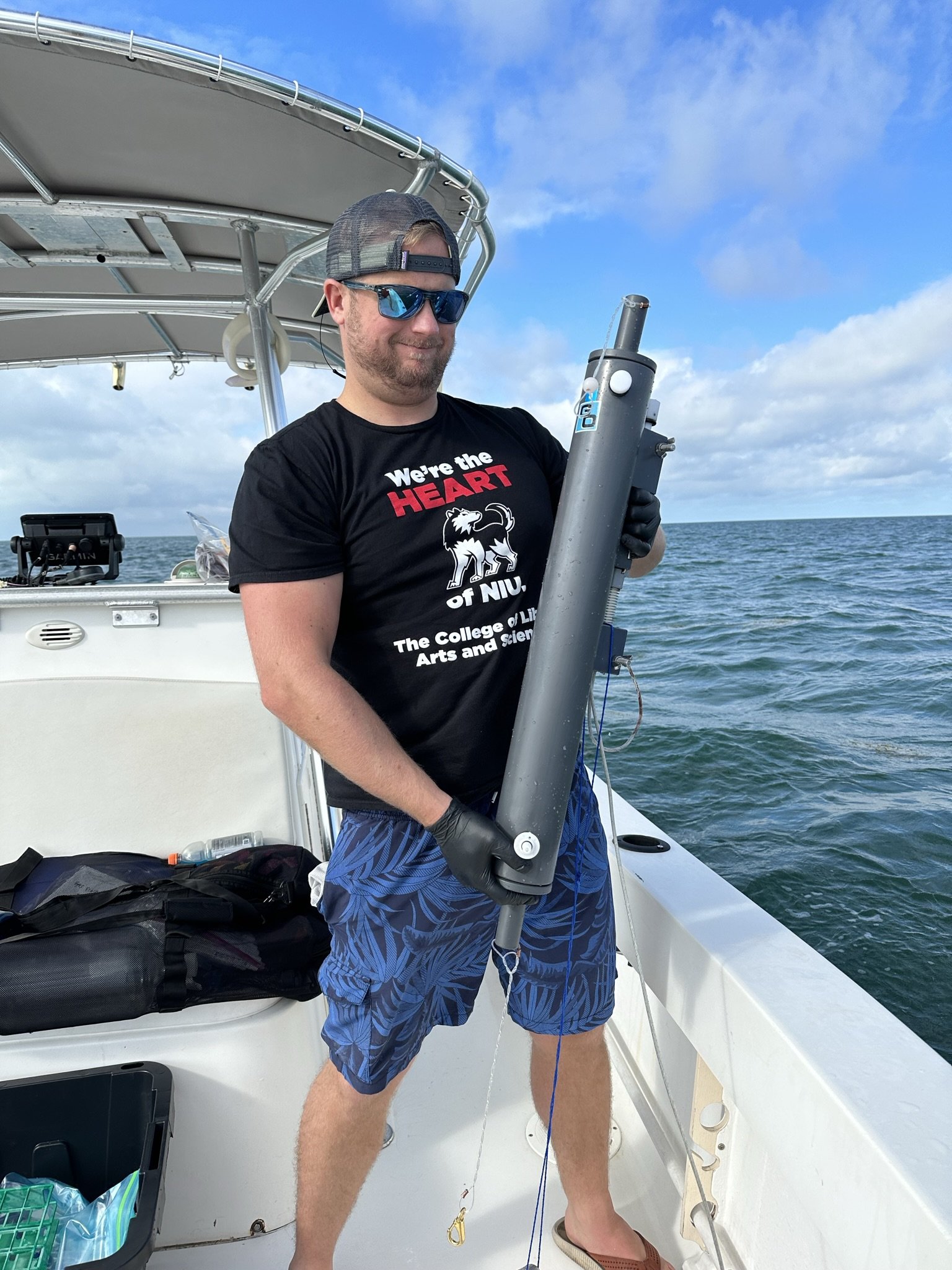
PI Henson with a Niskin full of water (Marathon Site, November).
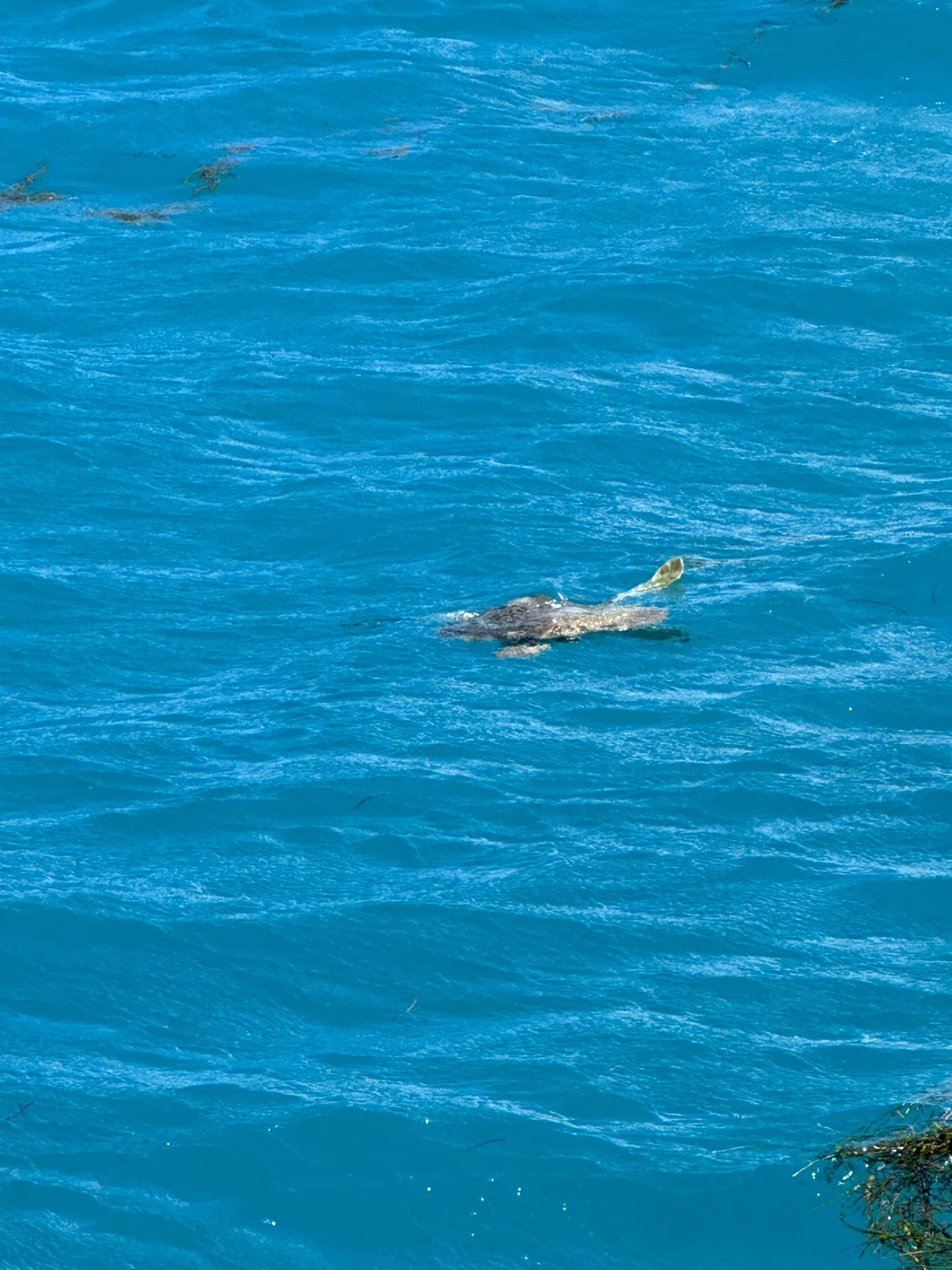
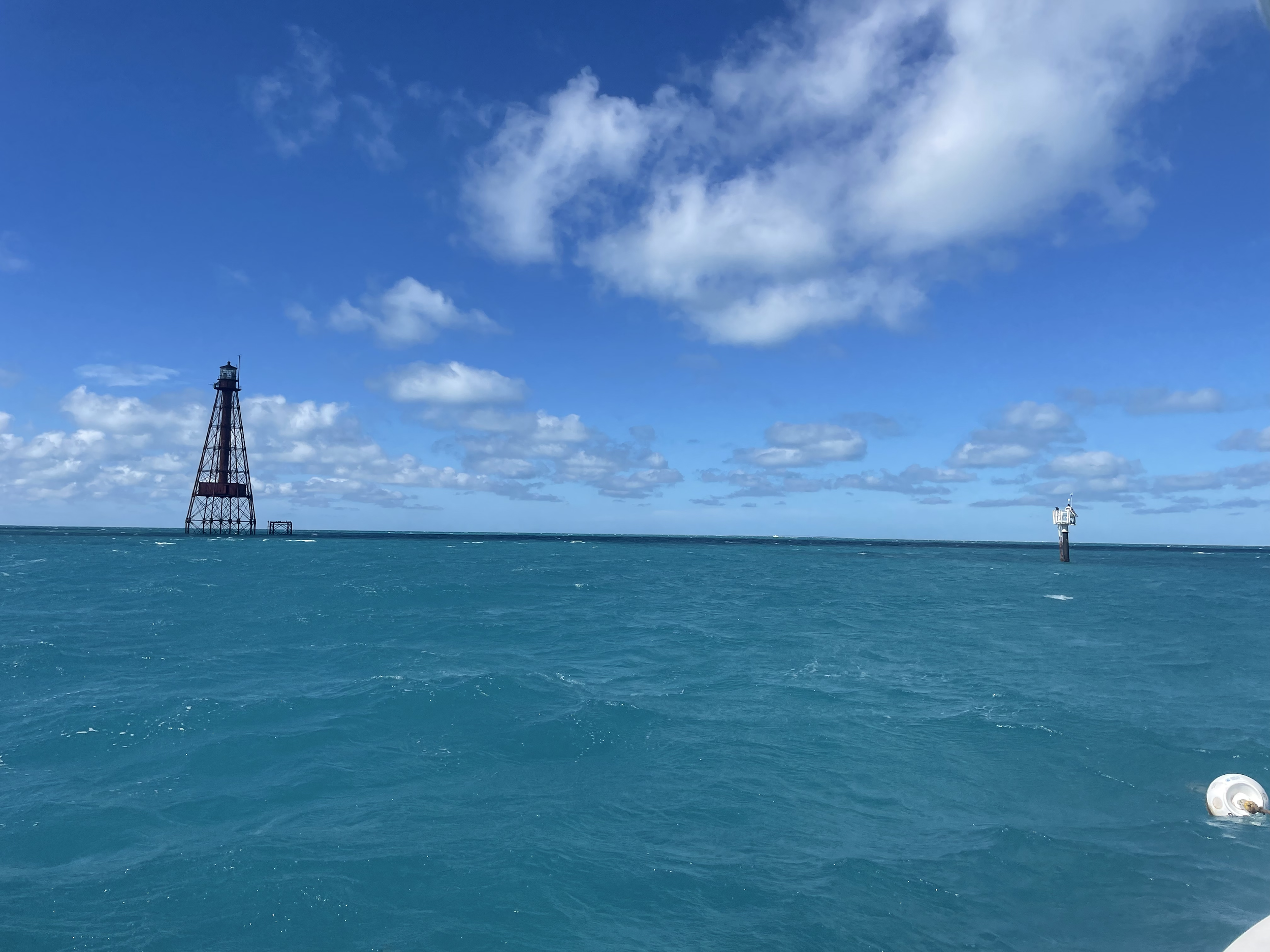
Sombrero Reef (November)
